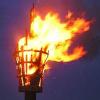| The Wisdom Of Crowds 20:56 - Feb 17 with 1054 views | NeiltheTaylor |
Crowd-pleasing is no substitute for wise judgment
It is in the nature of a crowd to turn on anyone who dissents from average opinion
The wisdom of crowds” has become a modern cliché. And a strange one – the crowds that attended the Nuremberg Rallies, or cheered the tumbrils of the Reign of Terror, were anything but wise. Many adjectives might be applied to the assemblies that gather to applaud Dear Leader Kim Jong Un or cheer Chelsea Football Club – but “wise” is not one. Anyone standing back from these events must ask themselves a question: how could large numbers of people, so similar to ourselves, behave like that? What on earth were they thinking?
There is considerable research on the factors that influence the behaviour of crowds. We experience a need to affirm group or tribal identities – a fact that is often exploited by unscrupulous or mentally unbalanced leaders. Groups of people with similar opinions reinforce each other’s positions, encouraging one another to adopt ever more extreme views. The answer to the question “what were they thinking?” is that, mostly, they were not thinking at all. That is often the nature of social behaviour.
So how did the phrase “wisdom of crowds” come into being? It is an expression of the mathematical property that an average of many independent estimates of the same variable has a lower expected error than the individual estimates themselves. That was the context of the example which James Surowiecki used to introduce the idea in his widely read book of the same name, citing the distinguished mathematician Francis Galton’s observations at an ox weighing competition (actually, Galton was concerned with the median rather than the mean estimate, but let that technical detail pass).
It is entirely rational to adopt the common opinion on a subject about which one knows little; I believe the earth is round because that is the balance of informed opinion, and would a millennium ago have believed it to be flat, for the same reason. But the number of practical situations in which this statistical property is useful is severely limited. It is usually better to direct one’s efforts at reducing the error of estimates rather than increasing the number of erroneous estimates. That is why we prefer to entrust the navigation of a plane to a skilled pilot instead of using the average of the opinions of the passengers.
The wisdom of crowds becomes a pathology when the estimates of the members of the crowd cease to be independent of each other, and this is likely when the crowd is large, ill-informed, or both. It is in the nature of a crowd to turn on anyone who dissents from what is already the average opinion. This is equally true on the streets of revolutionary Paris, the squares of Pyongyang, and the terraces of Chelsea Football Club.
Or on the trading floor of an investment bank. The supposed wisdom of crowds is used as a justification for claims of market efficiency, crudely expressed in slogans such as “the market knows best” and “you can’t buck the market”. At a sophisticated level, the idea provides a rationale for a regulatory philosophy that attempts to reproduce the conditions required for the validity of Galton’s result – the existence of many independent estimates of the same variable.
So we aim to promote a trading environment characterised by many conflicting assessments of the value of a security based on identical – and therefore necessarily limited – information about the value of securities. The belief that an aggregate of casual opinions provides a better process of value discovery than a flow of informed judgment through close engagement by investors, is an article of faith rather than a matter of empirical evidence.
Galton wrote of the wisdom of crowds. The still more distinguished mathematician Isaac Newton, after losing vast sums investing in the South Sea bubble, wrote more wisely of their madness.
http://www.ft.com/cms/s/0/9a00972c-822f-11e4-a9bb-00144feabdc0.html |  |
| Joe_bradshaw -I thought the cryochamber was the new name for Cardiff's stadium.
|
| |  |
| The Wisdom Of Crowds on 21:13 - Feb 17 with 1036 views | FearOfAJackPlanet |
'Madness is rare in individuals - but in groups, parties, nations, and ages it is the rule' |  |
|  |
| The Wisdom Of Crowds on 21:26 - Feb 17 with 1024 views | monmouth |
Agreed. The majority of uninformed swans fans that have no idea of the history and will be fooled by the shiny shiny talk of 'investment' should be treated as insane. That's what you meant Neil wasn't it....? |  |
|  |
| The Wisdom Of Crowds on 12:34 - Feb 18 with 961 views | Lohengrin |
| The Wisdom Of Crowds on 21:13 - Feb 17 by FearOfAJackPlanet |
'Madness is rare in individuals - but in groups, parties, nations, and ages it is the rule' |
It's not very often Nietzsche gets quoted on here.  |  |
| An idea isn't responsible for those who believe in it. |
|  |
| The Wisdom Of Crowds on 13:18 - Feb 18 with 949 views | ApeShit |
Good read. |  | |  |
| The Wisdom Of Crowds on 14:43 - Feb 18 with 923 views | GreatBritton |
| The Wisdom Of Crowds on 12:34 - Feb 18 by Lohengrin |
It's not very often Nietzsche gets quoted on here.  |
Indeed. And we need more Wittgenstein too |  | |  |
| The Wisdom Of Crowds on 00:40 - Feb 20 with 854 views | NeiltheTaylor |
| The Wisdom Of Crowds on 21:26 - Feb 17 by monmouth |
Agreed. The majority of uninformed swans fans that have no idea of the history and will be fooled by the shiny shiny talk of 'investment' should be treated as insane. That's what you meant Neil wasn't it....? |
I haven't made my mind up yet - I'm waitin for fuller facts to emerge... |  |
| Joe_bradshaw -I thought the cryochamber was the new name for Cardiff's stadium.
|
|  |
| |